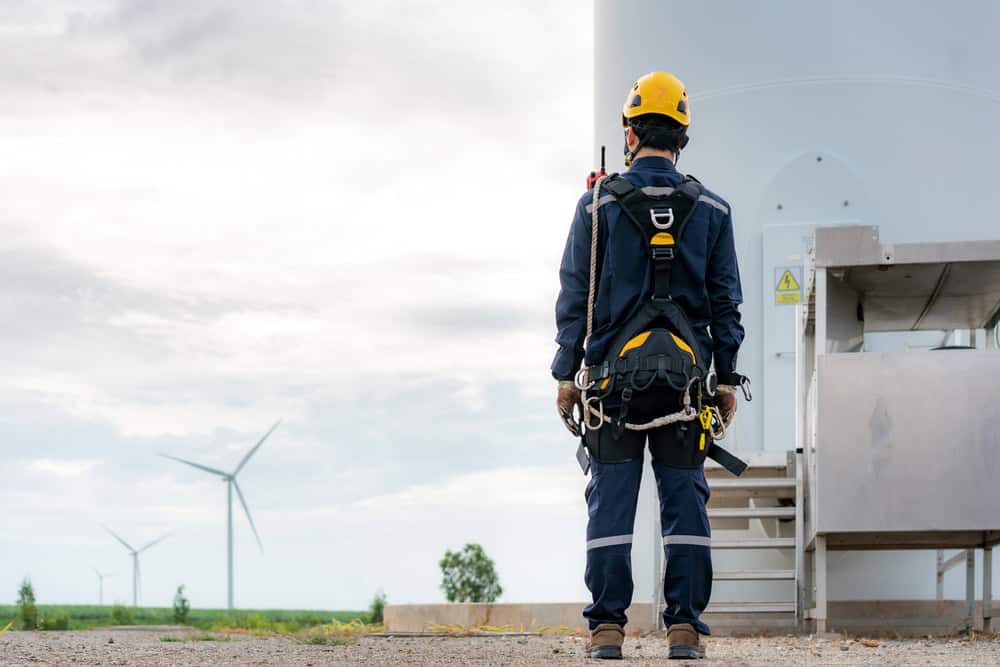You’re determined to pursue a career with greater purpose, and you’ve found some sustainability jobs you like the sound of, so what are the next steps?
When you’re starting out in the industry, it can be hard to know how to communicate your transferable skills and work experience to a potential employer. It’s encouraging to see the sustainability sector grow and evolve in line with new policies and legislation, however, this means that jobseekers looking for sustainability roles are often unsure how to stand out during the application process.
Here are our six steps to success when applying for a job in sustainability:
1. Connect with other sustainability professionals and grow your personal network
Speaking to sustainability professionals is a great way to explore your passions and areas of interest. Their sector experience means they’ll be able to advise you on how best to present your qualifications and previous experience in your application.
If you’re not sure where to start when it comes to growing your network, LinkedIn is a good first port of call. You can research sustainability companies and connect with current employees to find out more about their roles.
IEMA and other professional bodies provide opportunities to develop meaningful relationships with sustainability experts through their industry events and networks. Look out for IEMA’s network for early-career professionals.
2. Uncover your interests in the sustainability sector
It’s important to look for sustainability roles that combine your interests and passions with your qualifications, current skills, and areas of expertise. Remember, you have something valuable and unique to bring to a sustainability job – once you’ve identified that niche, you’ll be able to convincingly communicate your passion and suitability for the job during the interview process.
3. Research current sustainability trends
Before you apply for sustainability roles, make sure you’re up to date with the industry trends and sustainability issues being discussed in the news and other publications. Being aware of the latest sector developments will stand you in particularly good stead when it comes to the interview process, as it clearly demonstrates your insight and passion for sustainability.
4. Discover your transferable skills
If you’re applying for your first sustainability job, it’s worth spending some time matching the skills you’ve gained in your career already to the requirements of the role. Make sure you highlight on your CV and LinkedIn profile the transferable skills you’ve gained from previous jobs, side hustles, volunteering positions or elsewhere. During interviews, it’s important to link your skills to specific situations you might face in a sustainability role, highlighting the hands-on value you could bring to a potential employer.
5. Gain experience through volunteering
As well as helping local communities and doing good for the planet, volunteering can also be a route to developing your transferable skills and networking with like-minded individuals. There are many different types of volunteering, each with varying time commitments, from long-term full-time placements to micro-volunteering opportunities.
Climate action and conservation volunteering can open your eyes to the internal workings of charities and sustainability organisations, as well as the types of jobs that exist in the sector. Real-world experience gained through volunteering can provide useful examples to draw on during interviews. Any gaps in your skillset that you identify while volunteering can be addressed by taking on specific sustainability training courses.
6. Take part in workplace sustainability initiatives
If you’re struggling to find the time to volunteer, it may be that your current employer has sustainability initiatives that you can contribute to. If your workplace doesn’t already have a sustainability network, you could consider setting one up yourself.
A sustainability network brings together people with a shared interest in the environment to discuss how to tackle climate change and make organisations more sustainable. Workplace initiatives like cycle-to-work schemes, community clear-ups, and the banning of single-use plastics can lead to opportunities to collaborate with local organisations, which in turn expands your network and skillset further.
Browse the Green Careers Hub for more career insights and tips on how to apply for a job in sustainability.
This is a guest blog written by Hays for the Green Careers Hub. Hays is a strategic partner of the Green Careers Hub.
Image credit: Shutterstock
Related articles

How to build a sustainability team that delivers

Transferable skills: essential sustainability competencies to master

